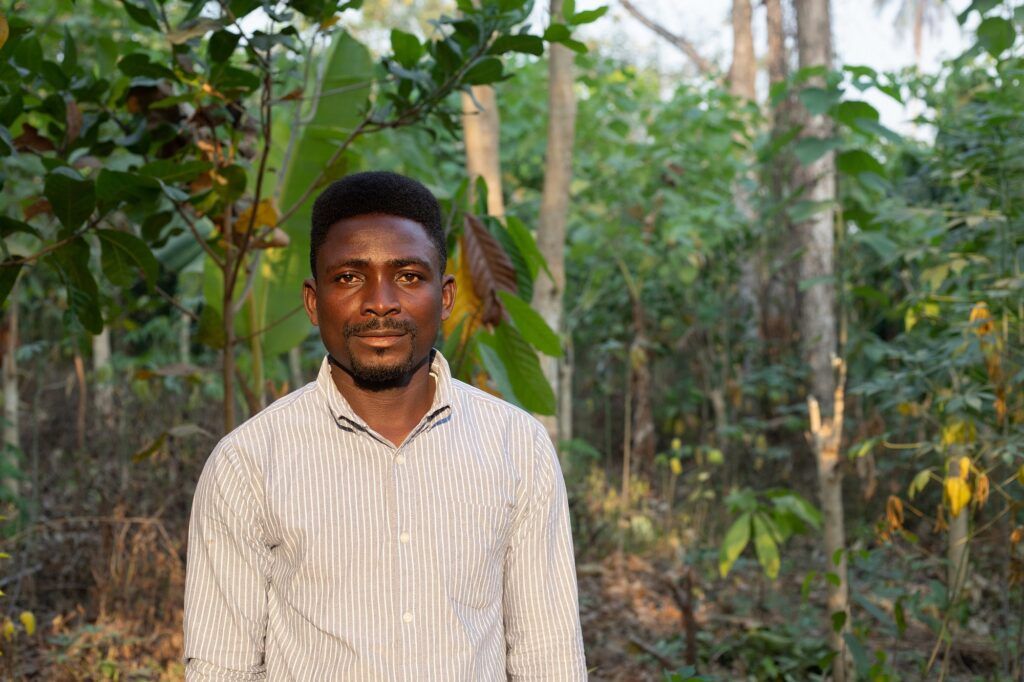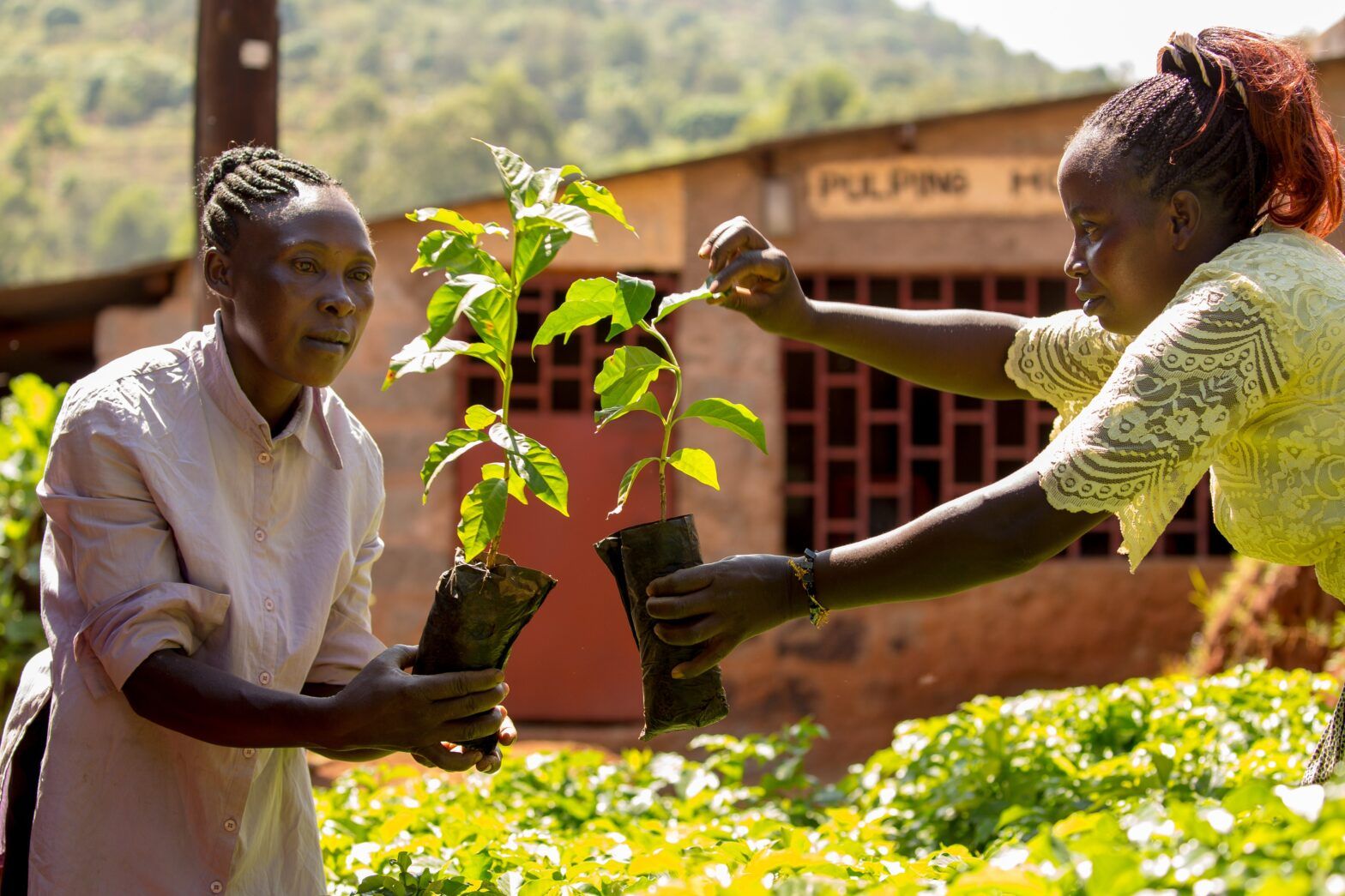Earlier this year, southern African communities were hit by devastating floods caused by Storm Ana. Fairtrade sugar producers from Kasinthula in Malawi were among the scores of people affected – their offices, homes and fields flooded, and their lives and livelihoods dealt a crushing blow.
Such crises are occurring more and more frequently due to climate change, and smallholder farmers in low-income nations – who grow much of the food we eat – are on the frontline. Research conducted by Fairtrade has mapped out the immediate threats climate change poses to the future viability of crops such as coffee, cocoa and bananas. The prognosis is not good.

Fairtrade cocoa farmer Bismark Kpabitey (pictured), from Ghana, was among our delegation to COP26 last November. Immediately after returning home from Glasgow he told me how the weather he came back to was completely out of sync from the normal patterns for that time of year. He reflected: “It is very difficult to go into agriculture [now] because the rainfall pattern has changed. There is drought: it is so severe that we are losing almost every crop… It’s very worrying, very disturbing.”
Fortunately, Fairtrade farmers have in-built resilience: the unique minimum price and the additional financial Fairtrade premium that groups receive means they have more working capital, and more control over how these funds are invested. For example, in the aftermath of Storm Ana co-operatives were able to distribute cash and food aid to help farming communities cope.
Fairtrade farmers across the world have long invested in disaster recovery funds, to aid with replanting and help those most affected get back on their feet. This is a vital lifeline to farmers, of course, but it’s also an increasingly important means through which buyers can ensure security of supply.
But the challenges of climate change cannot be met by any one organisation alone. There are tens of millions of smallholder farmers in low-income countries who will bear the brunt of intensifying climate impacts. They need urgent assistance from governments, companies, and investors.
A major challenge is that despite having the knowledge and know-how for how to adapt to climate change and shift to low-carbon production methods, the vast majority of smallholder farmers simply lack the finance needed to build climate resilience.
At COP26, some announcements were made on deforestation and for a ‘just rural transition’ that could provide vital support for farmers. But it is unclear whether these new funds will reach smallholder farmers and their communities, and there are rumours the funds will not start dispending finance until late 2023. Fairtrade will keep pushing the UK and other governments to deliver more ahead of the next COP in Egypt this November, but it would be unwise to wait around for governments to act.
What can investors do?
There is, therefore, a critical role investors can play in supporting farming communities in lower-income countries, particularly those linked into global supply chains.
In many cases, companies can only go so far in addressing sustainability because at boardroom level questions around living income and human rights aren’t seen business critical – or are seen as actively pulling against the (legal) duty to deliver shareholder value.
Regulatory changes can help compel boards to consider sustainability issues. But there is also a key role for investor pressure. If investors make clear they want to see long-term return based on sustainable resilient supply chains – rather than short term extractive profits – and will not take fright at short-term reductions in profits for the sake of long-term value, then this is something that high-performing business will listen to. Such pressure could encourage companies to provide more support to the farmers and farms they buy from, including paying higher prices, and investing in projects and programmes that build climate resilience. Examples of how investors could play a part through their portfolios could include Shared Interest and FairCapital’s membership scheme – both of these organisations help finance Fairtrade farmers and co-operatives.
More generally, investors should critically assess ESG scores when making investment decisions. Investors should also ‘do no harm’ by divesting from extractive industries that are execrating the climate crisis.
Taking such steps is not just the right thing to do, but is increasingly what consumers expect. New consumer research conducted by Opinium for Fairtrade Foundation shows that 84% of Brits say more should be done to prevent harmful trade practices like low pay, while 78% believe it’s important that people overseas who produce tea, coffee, food and other staples are able to adapt to climate change.
I hope that this year all of us – businesses, investors, consumers and governments alike – will join farmers and use our respective power to tackle the climate crisis. The sooner we all invest in sustainable solutions for the planet, the better.
Main image credit: Fairtrade Netherlands and Fairtrade International








